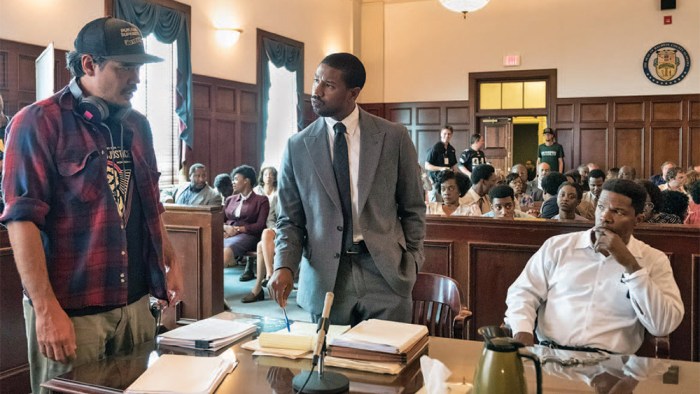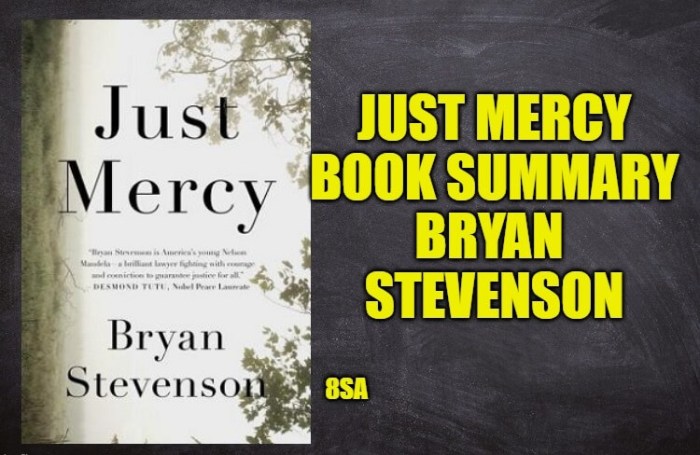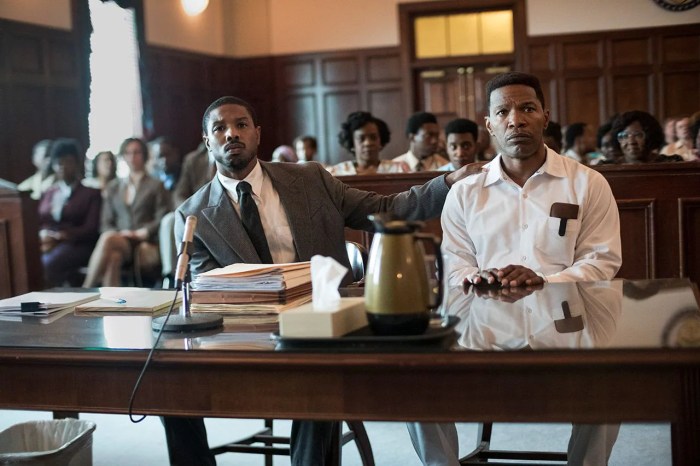Just mercy summary chapter 9 – In Just Mercy Chapter 9, we delve into the gripping tale of Walter McMillian, a man wrongly convicted of murder and sentenced to death. This chapter explores the flaws within the criminal justice system and the relentless pursuit of justice by Bryan Stevenson, exposing the deep-rooted racial prejudice that permeates the system.
Bryan Stevenson’s investigation uncovers a web of deceit and false testimony, leading to Ralph Myers’ recantation of his initial statement. The subsequent retrial sheds light on the systemic failures that allowed for McMillian’s wrongful conviction, ultimately leading to his exoneration.
Chapter Summary

Chapter 9 of “Just Mercy” delves into the systemic racism and inequality within the American criminal justice system. Bryan Stevenson highlights the case of Anthony Ray Hinton, a black man who was wrongfully convicted of double murder and sentenced to death row for 28 years.
The chapter exposes the flaws in the investigation, the lack of credible evidence, and the biases that led to Hinton’s unjust conviction. Stevenson emphasizes the importance of due process, the right to a fair trial, and the need to challenge the systemic biases that perpetuate injustice.
Key Events
- Bryan Stevenson meets Anthony Ray Hinton on death row and learns about his case.
- Stevenson investigates the case and uncovers the flaws in the investigation and the lack of credible evidence.
- Hinton’s death sentence is overturned, and he is released from prison after 28 years.
Key Characters
- Bryan Stevenson:A lawyer who fights for the rights of the poor and the wrongly convicted.
- Anthony Ray Hinton:A black man who was wrongfully convicted of double murder and sentenced to death row for 28 years.
Key Themes
- Systemic racism and inequality in the criminal justice system
- The importance of due process and the right to a fair trial
- The need to challenge biases and prejudices
Walter McMillian’s Case

Walter McMillian, an African American man, was falsely accused and convicted of the 1986 murder of Ronda Morrison, an 18-year-old white woman. The charges against him included capital murder and robbery. The prosecution’s case relied heavily on the testimony of Ralph Myers, a career criminal with a history of lying, who claimed to have witnessed the crime.
Role of Racial Prejudice
The trial was marred by racial prejudice, with prosecutors using racially charged language and stereotypes to sway the jury. McMillian’s defense attorney, John Furman, was inexperienced and ineffective, failing to challenge the prosecution’s weak evidence or present a strong defense.
As a result, McMillian was convicted and sentenced to death in 1988. The racial bias in the case was evident throughout the trial, from the selection of an all-white jury to the prosecutor’s closing argument, which appealed to the jury’s racial fears and prejudices.
Bryan Stevenson’s Investigation: Just Mercy Summary Chapter 9

Bryan Stevenson’s investigation into Walter McMillian’s case was a comprehensive and meticulous process. He began by thoroughly reviewing the case files and interviewing all the witnesses and key players involved.
One of the main challenges Stevenson faced was the lack of physical evidence linking McMillian to the crime. The prosecution’s case relied heavily on the testimony of witnesses who had questionable motives and unreliable memories.
Evidence Uncovered
Despite the challenges, Stevenson uncovered several pieces of evidence that cast doubt on McMillian’s guilt. He discovered that one of the key witnesses, Ralph Myers, had a history of lying under oath and had been paid by the prosecution to testify against McMillian.
Stevenson also found that the police had withheld exculpatory evidence that could have helped McMillian’s defense. This evidence included a statement from a witness who saw McMillian at a different location at the time of the murder.
In chapter 9 of Just Mercy, Bryan Stevenson presents a compelling case for the importance of compassion and understanding in the criminal justice system. His experiences in defending Walter McMillian highlight the systemic racism and biases that plague the system.
For a comprehensive review of this chapter, check out the resources available at tamu biol 111 lab exam 1 . Returning to Just Mercy, Stevenson’s unwavering commitment to justice and his belief in the inherent dignity of every individual serve as a powerful reminder of the need for reform.
The Trial and Verdict

The retrial of Walter McMillian began on April 18, 1993. Stevenson’s defense strategy focused on discrediting the testimony of the key witnesses against McMillian, including Ralph Myers and Bill Hooks.
The prosecution argued that McMillian had confessed to the murder to Myers and Hooks, and that he had threatened to kill them if they told anyone. However, Stevenson presented evidence that Myers had a history of lying and that Hooks had been coerced into testifying against McMillian.
The Jury’s Verdict
After deliberating for three days, the jury found McMillian not guilty of murder. The verdict was a major victory for Stevenson and his team, and it marked a turning point in McMillian’s case.
Impact on the Criminal Justice System

Walter McMillian’s case highlighted systemic flaws within the criminal justice system, leading to reforms and increased scrutiny of prosecutorial practices.
Prosecution Misconduct and Withholding Evidence
McMillian’s case revealed the extent to which prosecutors could engage in misconduct, including withholding crucial evidence that could have exonerated him. This led to reforms that required prosecutors to disclose all exculpatory evidence to the defense.
Eyewitness Testimony and False Confessions
The case also raised concerns about the reliability of eyewitness testimony and the prevalence of false confessions. Reforms were implemented to improve the accuracy of eyewitness identifications and to reduce the likelihood of false confessions.
Death Penalty and Racial Bias, Just mercy summary chapter 9
McMillian’s case, along with others like it, sparked a national debate about the death penalty and the disproportionate impact it had on people of color. This led to increased scrutiny of capital punishment and a decrease in the number of death sentences imposed.
User Queries
What were the key events in Chapter 9 of Just Mercy?
Bryan Stevenson’s investigation, Ralph Myers’ recantation, and Walter McMillian’s retrial and exoneration.
How did racial prejudice play a role in McMillian’s case?
McMillian, an African American man, was tried by an all-white jury in a racially charged atmosphere.
What impact did McMillian’s case have on the criminal justice system?
It exposed flaws in the system and led to reforms aimed at preventing wrongful convictions.